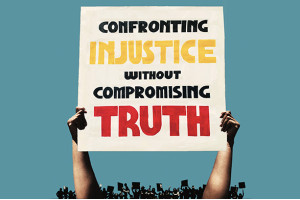

REL305/REL605: Confronting Injustice without Compromising Truth
This course looks beyond the divides of the left and right to discover how a Christian worldview speaks truth, hope, and unity into the most polarizing social justice controversies of our day. It presents a compelling vision of justice that offers hopeful answers to life’s biggest questions.
At a Glance
- Assigned proctor to guide you through the course and provide extra assignments
- Insight into current social justice movements (on both sides of the spectrum) through fair and critical analysis
- A greater understanding of what Jesus and the Bible have to say about justice
- Access to all course material—video lectures; readings enhanced by key concept reviews, and quizzes
- Access to the Cerego learning system to build memory retention of course objectives
- $280 per month access to complete the course at your own pace
More Details
Not everything called “social justice” today is compatible with a biblical vision of a better world. In the Confronting Injustice without Compromising Truth online course, Thaddeus Williams confronts our religious and political tribalism and challenges viewers to discover what the Bible and the example of Jesus have to teach us about justice. He presents a compelling vision of justice for all God’s image bearers that offers hopeful answers to life’s biggest questions.
Course Outline
- Introduction
- What Is Social Justice?
- The God Question: Does our vision of social justice take seriously the godhood of God?
- The Imago Question: Does our vision of social justice acknowledge the image of God in everyone, regardless of size, shade, sex, or status?
- The Idolatry Question: Does our vision of social justice make a false god out of the self, the state, or social acceptance?
- The Collective Question: Does our vision of social justice take any group-identity more seriously than our identities “in Adam” and “in Christ”?
- The Splintering Question: Does our vision of social justice embrace divisive propaganda?
- The Fruit Question: Does our vision of social justice replace love, peace, and patience with suspicion, division, and rage? [MIDTERM]
- The Disparity Question: Does our vision of social justice prefer damning stories to undamning facts?
- The Color Question: Does our vision of social justice promote racial strife?
- The Gospel Question: Does our vision of social justice distort the best news in history?
- The Tunnel Vision Question: Does our vision of social justice make one way of seeing something the only way of seeing everything?
- The Suffering Question: Does our vision of social justice turn the “lived experience” of hurting people into more pain?
- The Standpoint Question: Does our vision of social justice turn the quest for truth into an identity game?
- Conclusion: 12 Differences Between Social Justice A and B
- Practical Application [FINAL EXAM]
